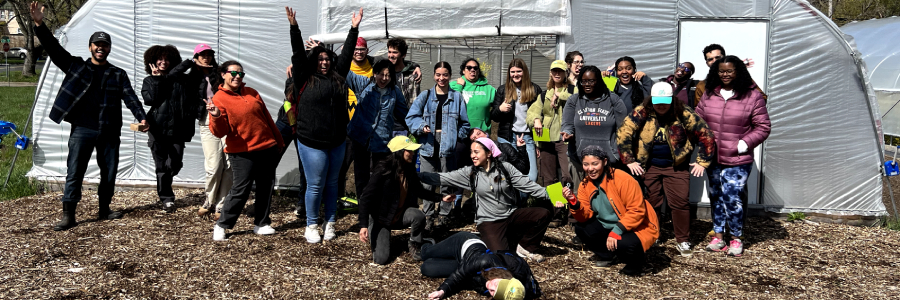Building an Inclusive Society
Last year wasn’t just a banner year for membership in ESA — it also featured a culmination and maturation in our efforts to support the career aspirations of all ecologists.
For the research community, we published two key collections that elevated the work of marginalized ecologists. In January, Frontiers in Ecology and the Environment published its “Advancing ecology through Black voices” special collection, edited by Nyeema Harris. This was followed in August by a special feature in Ecological Applications, “Broadening Perspectives”, organized by Gillian Bowser and Carmen Cid, which “highlights research exploring human dimensions of applied ecology and ecological disruptions.”
In February, we organized a two-day workshop to explore the current state of DEI in academic publishing, determine strategies to ensure DEI throughout the publishing process, and address the financial burdens created by Open Access publication. Approximately 50 individuals with a role in scholarly publishing attended the NSF-funded workshop (Award #2209643).
SEEDS, able to get back to a full schedule of activity—and we mean a full schedule, involving three regional field trips and the annual leadership meeting—continued to be a major highlight of our work. Staff facilitated the launch of 12 new chapters across the country, taking us up to 46 active campus groups. They cumulatively held 175 events over the course of the year, supported by $25,000+ in chapter grants, and collectively participated in a national BioBlitz in April, with 142 observers documenting more than 1,100 species.

SEEDS students had a fantastic time on the regional field trip to Kellogg Biological Station
And of course, we were pleased to announce early in the year that we had achieved our highly ambitious goal to fulfil the Henry L. Gholz SEEDS National Field Trip Endowment. The final push between the waning months of 2022 and January 2023 raised $165,000 from 220 individual donors, especially the $100,000 pledged by Phil Taylor. Now SEEDS national field trips are funded in perpetuity, and as the endowment grows, so will our ability to expand the program.
The ESA Excellence in Ecology Scholarship program added a second cohort of awardees, and got a major boost thanks to a major funder’s initial gift of $100,000 to launch our new Equity and Excellence in Ecology Endowment to fund inclusivity programs far into the future; a campaign over the summer and fall resulted in 62 founding donors contributing an additional $34,000 that brought us nearly halfway to our goal for the fund!